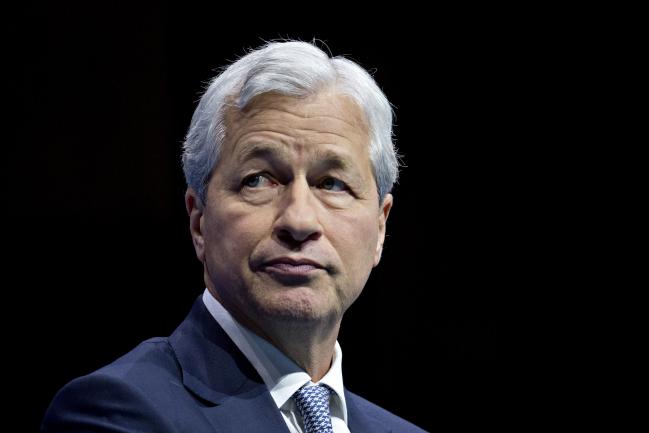(Bloomberg) --
Jamie Dimon said the coronavirus pandemic will lead to a major economic downturn and stress mirroring the meltdown that nearly brought down the U.S. financial system in 2008.
“At a minimum, we assume that it will include a bad recession combined with some kind of financial stress similar to the global financial crisis of 2008,” the chief executive officer of JPMorgan Chase (NYSE:JPM) & Co. said Monday in his annual letter to shareholders. “Our bank cannot be immune to the effects of this kind of stress.”
The 23-page letter, his shortest since 2008, came less than a week after Dimon told staff he’d returned to work after undergoing emergency heart surgery. It was his first public commentary about the coronavirus since the bank’s investor day on Feb. 25. At the time, the outbreak still seemed a distant threat, with fewer than 60 cases in the U.S. and none in New York.
Dimon, the only current CEO who steered a major U.S. bank through the financial crisis, said JPMorgan’s earnings will be “down meaningfully” this year, though the bank is “unlikely” to cut its dividend. Such a move would only result from “extreme prudence,” he said. JPMorgan will give more details on the impact on the bank when it reports first-quarter earnings later this month, he said.
The 64-year-old CEO outlined initiatives his bank is taking to support employees, businesses and the community, but refrained from offering long opinions about public policy that marked previous missives.
Read more: What to Know About Recessions as World Heads Into One: QuickTake
He said 180,000, or about 70%, of the firm’s employees are working from home, and the bank is giving payments of $1,000 to those whose jobs don’t allow them to work remotely.
JPMorgan has been waiving fees for some loans, allowing customers to defer payments on mortgages and auto loans, and removing minimum payment requirements on credit cards. It’s also extended $950 million in new loans to small businesses over the past 60 days, and is planning to lend an additional $150 billion to clients across the world.
Regulatory Review
After the crisis, “we should use the opportunity to closely review the economic response and determine whether any additional regulatory changes are warranted to improve our financial and economic system,” Dimon wrote. “There will be a time and place for that -- but not now.”
Dimon has become a spokesman for Wall Street thanks to his frequent public appearances, outspoken nature and nearly 15-year tenure at the biggest and most profitable bank in America. His absence while he recovered from surgery was felt across the industry as policy makers grappled with dire warnings about the economic effects of the pandemic and governments stepped up efforts to keep millions of people at home to stem the spread of the highly contagious virus.
Dimon was more pessimistic about prospects for the economy than some industry figures were when the scale of the crisis was first becoming clear. A month ago, as stock markets were sliding, former Goldman Sachs Group Inc (NYSE:GS). CEO Lloyd Blankfein said in a tweet to “expect quick recovery when health threat recedes.” He said the economy “will avoid systemic damage” that takes years to work through.
‘Forever Lost’
Dimon said JPMorgan has been working closely with the government during the crisis, but the bank “will not request any regulatory relief” for itself. Still, regulators could change capital and liquidity requirements to help more capital flow through the system, he said.
“Some rules can improperly prevent healthy, well-capitalized banks from lending freely in times of stress,” Dimon said. “This can hurt customers as the crisis deepens. Leaving high-quality, available liquidity undeployed in times of need is an opportunity forever lost.”
He applauded recent actions by U.S. Department of Treasury and the Federal Reserve, which he said helped mitigate the economic impact of the virus.
Until last year, the annual missives had gradually gotten longer, more than tripling in length since Dimon took over as CEO of JPMorgan at the end of 2005. The CEO writes the letters himself but drafts are reviewed and edited by the bank’s legal, accounting, compliance, public relations and government affairs teams before they’re published.
(Updates with firm’s initiatives, pledge on regulatory relief starting in fifth paragraph.)
©2020 Bloomberg L.P.
